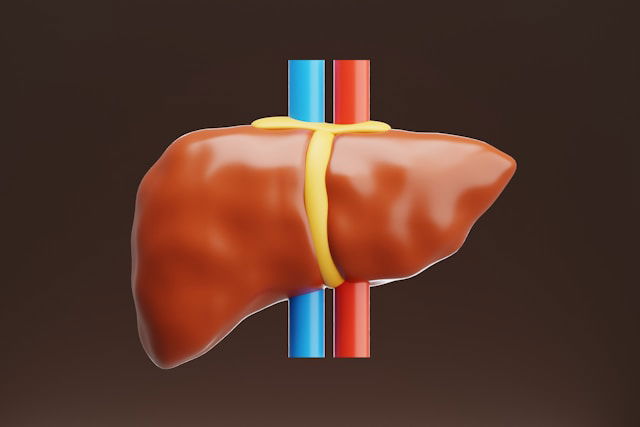
The liver is known for being one of the body’s toughest organs, capable of healing itself from damage.
But over time, even the liver can wear down from stress, poor diet, or aging, leading to disease and even failure.
Now, scientists from Duke Health have made an exciting discovery that could help restore the liver’s health—even in older individuals.
The study, published in the journal Nature Aging, involved experiments with mice and human liver tissue.
The researchers found that the aging process causes liver cells called hepatocytes to die through a process called ferroptosis, which depends on iron. This cell death is made worse by metabolic stress from conditions like obesity, diabetes, or high cholesterol.
Dr. Anna Mae Diehl, senior author of the study, explained that their research shows aging in the liver might be reversible. “You are never too old to get better,” she said.
The team wanted to understand how a common liver condition called MASLD (metabolic dysfunction-associated steatotic liver disease) turns into something more serious, like cirrhosis. This condition affects about one in three adults worldwide and is more likely to become severe with age.
The researchers looked at the genetic activity in old and young mice and found that older livers had genes switched on that cause cell death. They then looked at human liver samples and saw the same pattern in people with obesity and MASLD. The worse the disease, the stronger the gene activity promoting ferroptosis.
With this knowledge, the team tried treating mice with a drug called Ferrostatin-1, which blocks ferroptosis. They gave this drug to both young and old mice that had been fed a diet causing liver disease. The results were remarkable—livers from the treated animals looked young and healthy again, even in older mice.
“It’s like we had old mice eating hamburgers and fries, and we made their livers like those of young teenagers eating hamburgers and fries,” said Dr. Diehl.
The researchers also looked at how liver damage affected other organs like the heart, kidneys, and pancreas. They found that liver damage from ferroptosis can increase stress in other organs too. By reversing this process in the liver, they could also help protect other parts of the body.
This breakthrough could bring hope to millions of people living with liver problems. While more studies are needed, especially in humans, the results show that it may be possible to turn back the clock on liver aging and stop serious liver disease before it becomes life-threatening.
If you care about liver health, please read studies that refined fiber is link to liver cancer, and the best and worst foods for liver health.
For more health information, please see recent studies about how to boost your liver naturally, and simple ways to detox your liver.
Copyright © 2025 Knowridge Science Report. All rights reserved.



